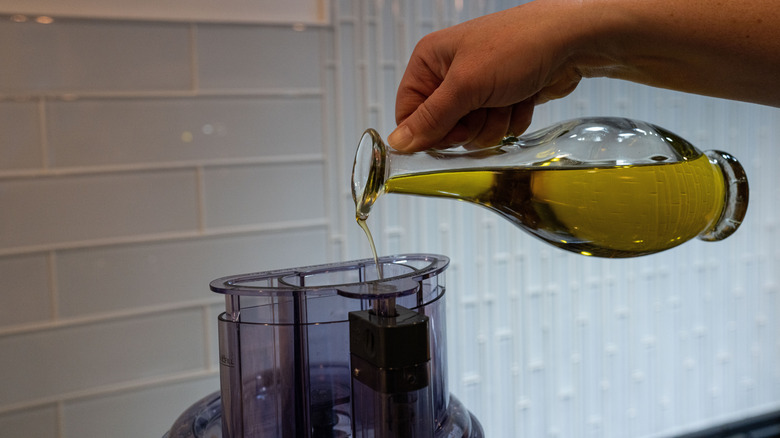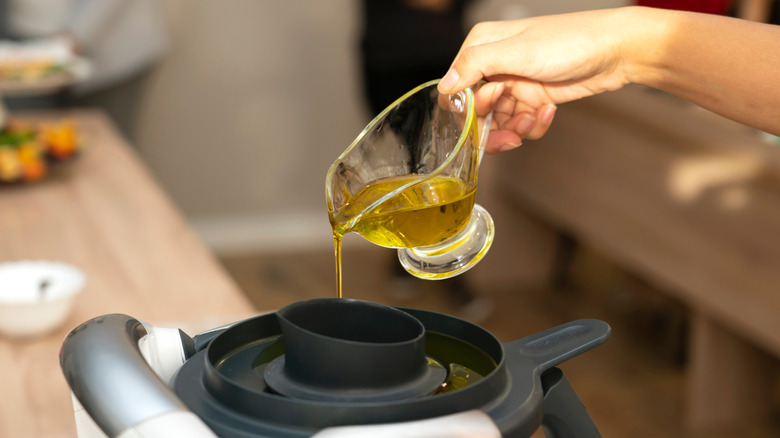Why Olive Oil Turns Bitter When Blended (And How To Avoid It)
You're whisking up a beautiful garlic aioli or fresh chimichurri in your food processor, fully anticipating a batch of super-creamy and flavorful condiments to go with your salads. But when you taste it — bleh! A bitter tang gives your taste buds a mouth-puckering wallop. No, you didn't mess up the recipe. The culprit, surprisingly, might've been your prized extra virgin olive oil.
As flavorful as extra-virgin olive oil is on its own, it can take a nasty bitter turn when you try blending it. The reason lies in a class of antioxidants found within olive oil called polyphenols. They aren't harmful — in fact, polyphenols are key compounds behind the healthfulness of olive oil, per the International Journal of Molecular Sciences. The only problem is that they taste awful: they're astringent and incredibly bitter.
You wouldn't taste them in out-of-the-bottle olive oil because, in their natural state, the polyphenols are suspended in a coat of fatty acids, which mask their flavor. When you blend up the oil, you're essentially breaking up the oil on a microscopic level into millions of tiny droplets. In the process, the bitter polyphenols are ejected from their fatty acid coatings and dispersed into your emulsion. The smaller the oil droplets, the more bitter it becomes. A blender or food processor whips the oil into the tiniest droplets of all ... so, unfortunately, they'll also give you the harshest-tasting results.
How to avoid bittering your blended olive oil
Don't worry — you won't have to give up on blending olive oil altogether. There are a couple of quick and easy fixes for this problem. One of the easiest is switching to regular olive oil rather than extra-virgin. Regular olive oil goes through a refining process that removes most of those bitter-causing polyphenols. Although you'll lose some of the fresh, herby flavor that olive oil's famous for, at least your sauce won't end up bitter.
Another trick is instead of throwing everything into the blender or food processor, blend the other ingredients of your sauce first, then slowly whisk your olive oil into it by hand until an emulsion forms. This way, you'll still be able to get your homemade sauce without breaking up the oil droplets into bitter micro-droplets.
But what if you discover the bitterness too late and now you have a batch of acrid processor-made basil pesto on your hands? Sadly, there's not much you can do to save it. Adding extra sugar or diluting the sauce is unlikely to help, so your best bet is to chuck out everything and start fresh. This time, do a small test run with one of the tricks above first to make sure you got the technique down pat ... and remember this piece the next time you have to make anything that involves blending up olive oil!

